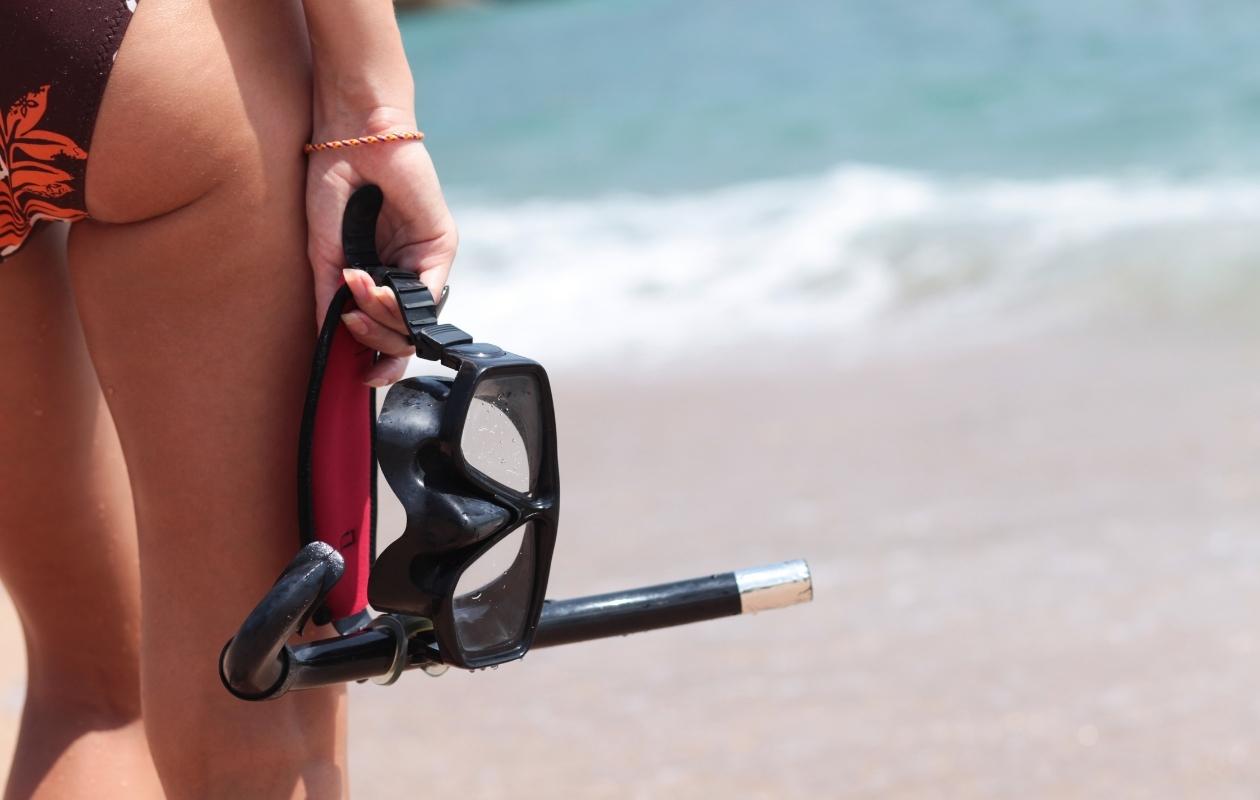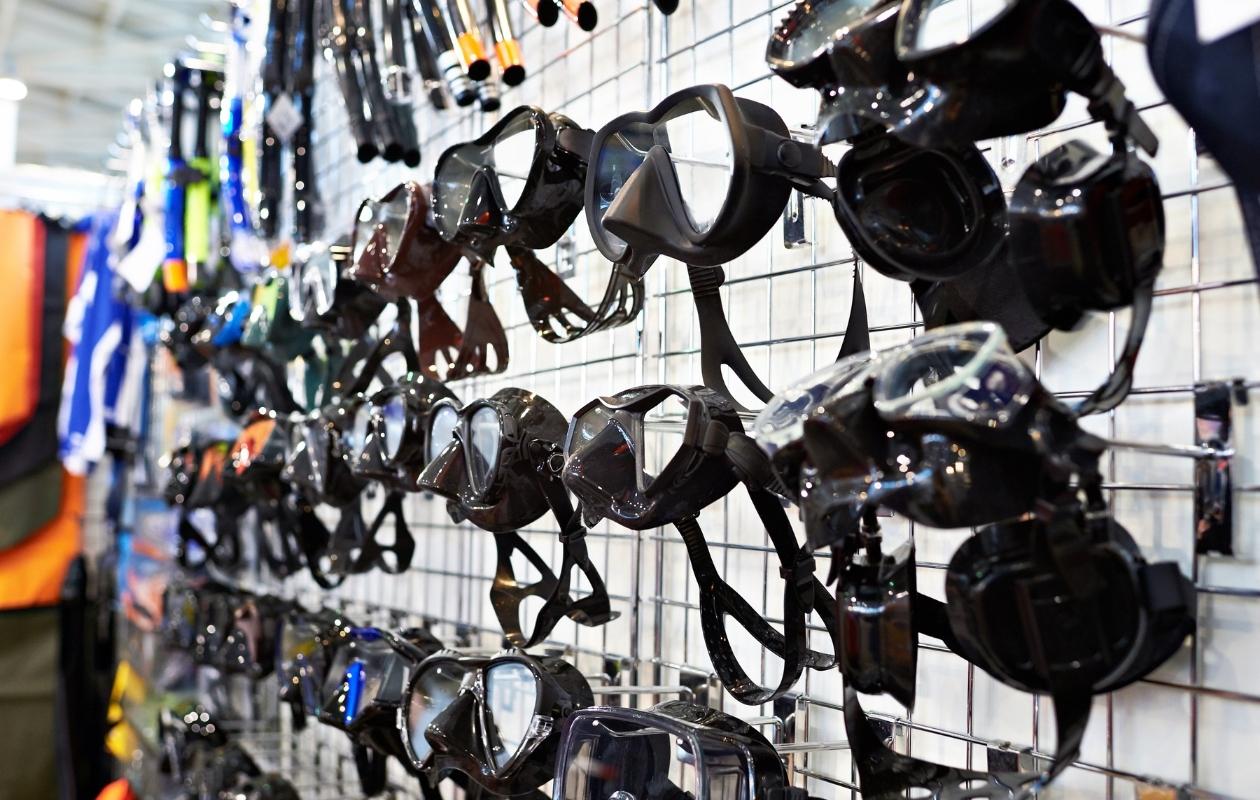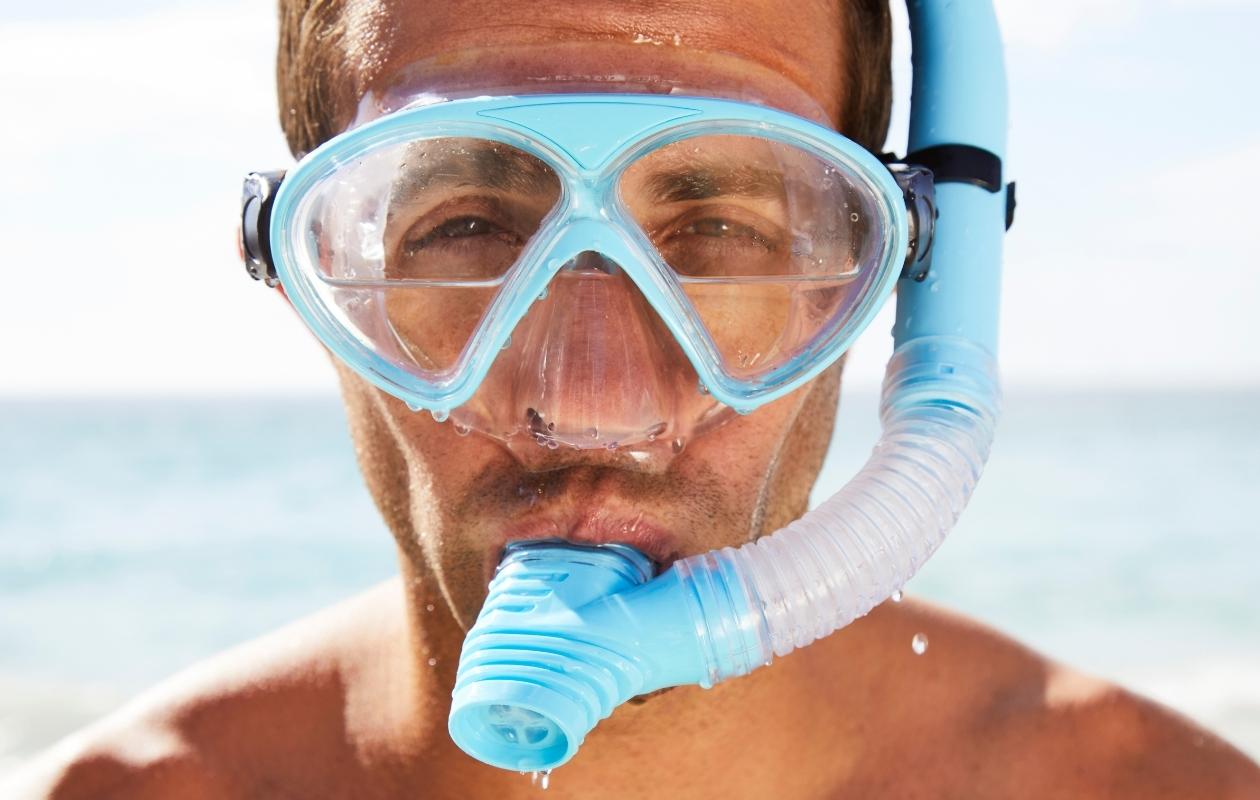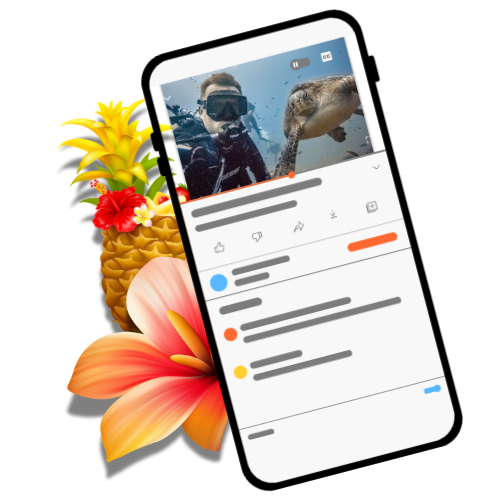A diving mask is one of the basic pieces of diving equipment. Your comfort and enjoyment of diving depends on it. When the mask leaks, or constantly steams, let’s agree, it will not be the most pleasant diving. Therefore, today we will talk about how to choose the best diving mask for you.
Practically everyone, especially those who are just at the beginning of their diving adventure will have to choose the right diving mask for themselves. But how to choose a diving mask so that it is the most comfortable and suitable for us? So that it does not leak during the exploration of the underwater world, and if, by the way, it does not evaporate it will be really great. A well-fitting diving mask, both main and backup, is one of the most important pieces of equipment for a diver.
How to choose a diving mask?
Maybe you think that every diving mask is the same and the choice can be limited to color at most. This is very far from the truth, because just as our faces are different, so will the masks be different from each other.
Our face is rarely symmetrical, which makes it even more difficult to choose the right mask. The way to find the one with which we will travel the boundless seas and oceans is actually very simple.
When choosing a diving mask check the fit
So, how to choose a diving mask? We start by turning the mask’s strap outward, in such a way that we can comfortably apply the mask to our face. Then we gently press it against our face. We should then feel the excess air behind the mask escape. At the same time, we gently draw air in through our nose and hold our breath for a moment.

With such an attempt, the mask should stay on our face without the help of our hands. If it starts to fall or is not able to stay on our face at all, then unfortunately we need to look for another model. The same applies if we feel or hear that the air is slowly being sucked into the mask. This simply means that it is not properly fitted to our face, and this will cause water to pour in later during each dive.
Diving mask must not rub off the face
Another thing you need to check when choosing a diving mask for yourself is whether it is comfortable. It may be leak-proof, so it passed the point above, but is it comfortable?
Note that every face is different. Some have larger noses, which, if the mask is too small, will be squeezed too tightly into that silicone nose pocket. It’s definitely not comfortable… Or maybe the space in the mask is so small that the glass touches your forehead. This will also affect the comfort of your dive and may also affect the safety of diving.
Don’t tighten the diving mask strap
This is a very common misrepresentation that I have no idea where it came from. Very often I see beginner divers, or snorkelers, tightening the diving mask strap as tight as they can. This shows a complete lack of understanding of what the strap is for. In addition, it results in a very “beautiful” red mask imprint on the face.
So let’s make it clear once and for all – the mask strap is not meant to seal the mask! The mask strap only keeps the mask on the head, not seals it. On the contrary, over-tightening the strap will cause the diving mask to lose the ability to respond to your facial expressions and this will result in even more leakage.
The strap of the diving mask is supposed to be loose enough so that the mask does not squeeze you in any place. On the other hand, the diving mask strap has to be tight enough so that the mask does not fall off your face. Just practice it. I always say this in our diving courses.
Try a variety of diving masks
The point is that a diving mask is a bit like underwear. It has a very intimate contact with our body as it touches our face. A badly fitting mask will not only be uncomfortable, but can cause abrasions or other damage to the delicate skin of the face.

Thus, it is a good idea to try on as many diving masks as possible. This will help us not only see which one fits our face, but also see what kind of field of view it has. Each mask is different from another mask. In one mask we will see a little wider, and in another a little narrower. And here we will already have to decide for ourselves what suits us better.
You can ask at the dive center if you could try different masks, or ask your colleagues to borrow their masks for a test dive. To find the right mask also takes some time and experience. Many divers have their favorite model and often buy several to stock up.
Effects of a badly chosen mask
As I said earlier, it takes time to choose the right mask for diving, but you’re sure to find your favorite. Always apply all the basic principles of mask selection that I mentioned above. If you dive in an incorrectly chosen mask the bad effects can be surprisingly many:
- flooding of the mask during the dive
- constant fogging of the mask
- abrasions and skin injuries
- risk of losing the mask
- risk of getting lost due to limited field of vision
- risk of a panic attack, which can lead to serious consequences
Is it worth having a spare mask for diving?
OK, let’s separate the two issues here. First, is it worth buying two diving masks and always taking them with you on trips? Definitely yes. It’s just always better to have a spare dive mask in your gear bag. Different things happen. Maybe you lose the mask, maybe someone accidentally puts a scuba tank on it, and it just breaks. That’s why a spare mask is always more comfort that you won’t lose a good dive if anything happens.
The second issue is whether it is worth taking a spare mask with you on a dive. Here the answer is not so obvious and it all depends on many factors. When we train on diving courses, our guide always has a spare mask with him. Simply as if an inexperienced student lost his, we can always just give him a spare and we don’t have to cancel the dive.

However, when I dive recreationally with experienced divers, I tend not to take a spare mask. On the other hand, when I do a tech dives, I always have a second mask with me, as it is mandatory for safety reasons. As you can see here enters the question of experience and simply common sense.
How to choose a diving mask? Let’s recap
A diving mask is a direct determinant of comfort when diving. Frankly speaking, I would rather dive with uncomfortable fins or a self-inflating BCD than in an incorrectly fitted dive mask. And at the end a small piece of advice. Don’t buy cheap products from “sports” stores. Such masks are suitable for snorkeling at most, and only for a moment. Buy a good quality scuba diving mask, made of soft and high-quality silicone. Such a mask may be more expensive, but it really can work wonders.



